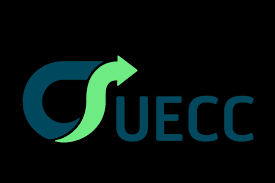United European Car Carriers (UECC), a Norwegian shipping company partly owned by Japan’s Nippon Yusen Kaisha (NYK), announced on January 6, 2025, that Jaguar Land Rover (JLR), the British automotive giant, has agreed to utilise its bio-liquefied methane (LBM)-powered car carrier service, branded “Sail for Change.” JLR’s adoption of the LBM-fuelled service is part of the company’s commitment to decarbonising its global logistics operations, including within Europe.
(Text by Hirofumi Yamamoto)
Photo courtesy=UECC, Jaguar Land Rover

JLR is the fourth major automotive manufacturer to adopt UECC’s “Sail for Change” service, following Toyota Motor Corporation, Ford of Europe, and several other leading European manufacturers. The initiative represents a significant step in reducing greenhouse gas (GHG) emissions in the automotive logistics sector.
Methane is the principal component of natural gas, while biomethane is a renewable form of methane produced from organic, biological sources. When liquefied, biomethane can be used as a marine fuel in LNG-compatible vessels, offering a lower-carbon alternative to conventional fossil fuels.
UECC’s fleet comprises 15 car carriers, five of which are equipped to run on dual-fuel LNG engines. The company sources its LBM supply from Dutch marine fuel provider Titan Clean Fuels, enabling it to offer low-carbon shipping solutions to its clients.

The “Sail for Change” initiative was launched by UECC in July 2024. With Titan’s support, UECC has extended the programme through the end of 2025. The LBM is supplied at the Port of Zeebrugge in Belgium, with the service expected to reduce GHG emissions by more than 75,000 tonnes.
JLR, which owns brands such as Land Rover, Defender, Discovery, and Jaguar, is actively working to electrify its vehicle line-up and has pledged to achieve net-zero GHG emissions across its entire value chain by 2039. The company’s use of bio-LNG shipping services aligns with its broader sustainability goals.
Environmental regulations governing ships docking in European ports are becoming increasingly stringent. Vessels are now subject to penalties based on their voyage-related GHG emissions and the carbon intensity of the fuel used. Shippers are seeking solutions to reduce their Scope 3 emissions, which include GHGs emitted by third-party logistics providers, as part of their overall sustainability strategies.

〆ジャガー・ランドローバー(JLR)、日本郵船(NYK)出資のUECCのバイオLNGを採用。
日本郵船が出資するノルウェーの船社United European Car Carriers(UECC)は2025年1月6日、液化バイオメタン(LBM)燃料を使用する自動車船サービス「セイル・フォー・チェンジ(Sail for Change)」を英国の自動車大手ジャガー・ランドローバー(JLR)が採用することで合意したと発表した。JLRはUECCが提供するLBM燃料を使用する自動車船サービスを利用する。JLRは脱炭素に向け、欧州域内を含めたグローバルな物流チェーンの構築を目指す。
自動車船サービス「セイル・フォー・チェンジ」を利用する自動車メーカーは、トヨタ自動車や米フォード・モーターの欧州法人、欧州の主要なメーカーに続き、JLRが4社目となる。
メタンは天然ガスの主要成分であり、バイオメタンは生物由来の有機資源から製造されたメタンである。バイオメタンを船舶用燃料として使用する場合、液化してLNG燃料に対応した船舶で使用できる。
UECCの自動車船隊は15隻あり、そのうち5隻がLNG二元燃料に対応している。オランダの船舶燃料サプライヤーであるTitan Clean FuelsからLBMの供給を受け、低炭素輸送サービスを提供している。
UECCは昨年7月に「セイル・フォー・チェンジ」を開始し、その後、Titanの協力を得て、2025年末まで同サービスを延長することを決定した。LBMはゼーブルッヘ港(ベルギー)で供給を受け、75,000トン以上のGHG(温室効果ガス)排出削減効果を見込んでいる。

JLRはランドローバー、ディフェンダー、ディスカバリー、ジャガーなどのブランドを保有している。自動車の電動化を進めているほか、2039年までにバリューチェーン全体のGHG排出ネットゼロを目指している。
欧州に寄港する船舶に対しては、環境規制が年々強化されている。航海に起因するGHG排出量や使用する燃料の炭素強度に応じてペナルティーが生じるため、荷主はそれらの対応を含め、スコープ3(事業活動に関わる他社のGHG排出量)の削減を進めている。
